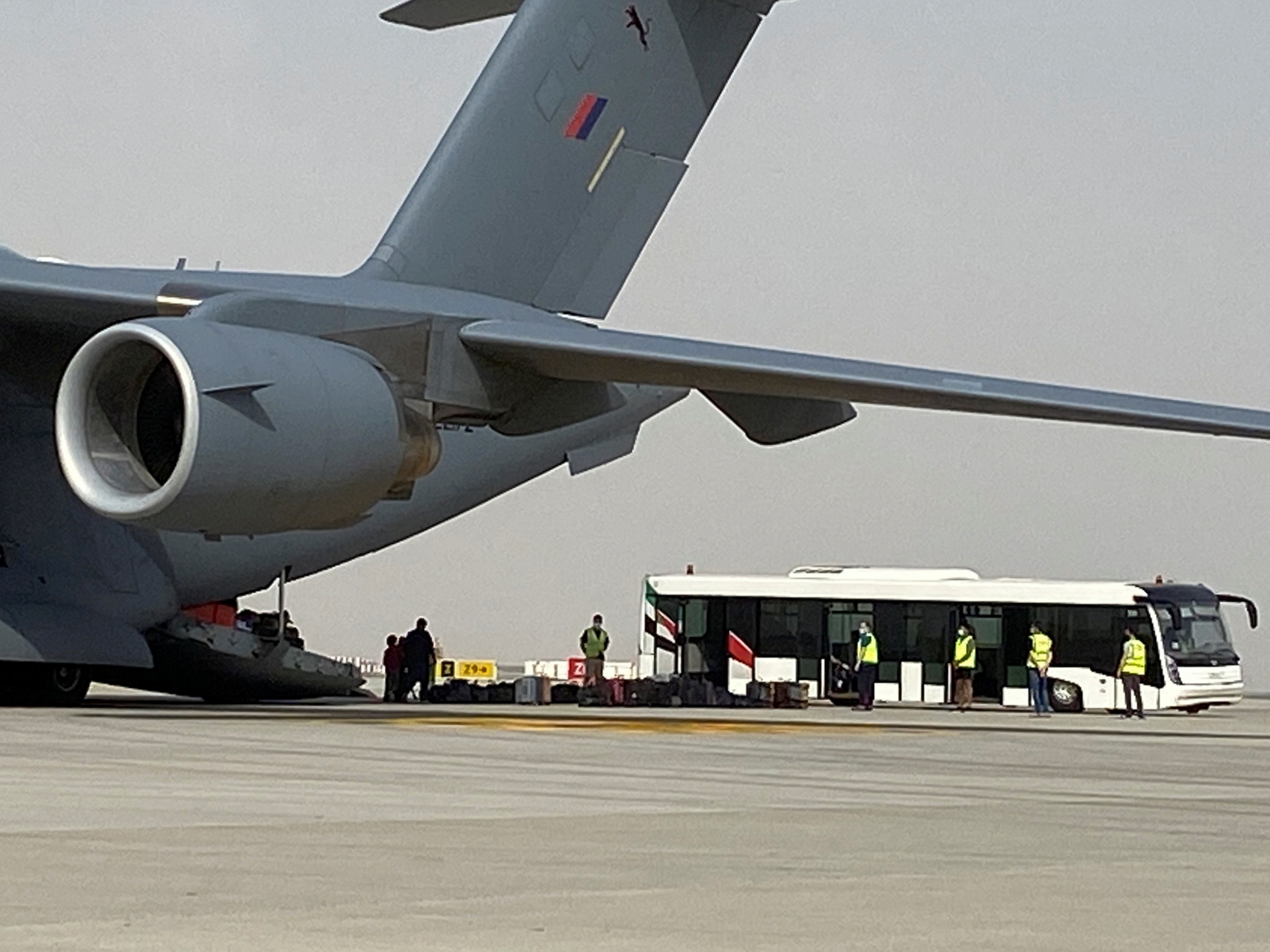Afghan evacuees protest in UAE over slow resettlement

Some Afghans who fled the Taliban takeover of Afghanistan say they have been stuck in limbo in the UAE for a year.
Hundreds of Afghans living in the United Arab Emirates (UAE) since being evacuated from Afghanistan in the wake of the August 2021 Taliban takeover have held protests, demanding that what they call a slow and opaque resettlement process be sped up.
The Afghan demonstrators carried banners and shouted for reprieve on Monday and Tuesday during demonstrations inside the Abu Dhabi facility housing them, according to Reuters, which cited two Afghans living there.
They estimated that thousands of Afghans were still living in the temporary housing, awaiting resettlement to the United States or other countries.
“Nearly one year, we have been here in detention and the camp is like a modern prison. No one is allowed to go out, they don’t know when (we) will be settled permanently to any country,” one Afghan who declined to be identified, told Reuters.
Pictures and video showed children and adults protesting in the facility, known as Emirates Humanitarian City.
One boy held a small banner that read: “One year is enough!”
Some chanted “we want justice” while wearing blindfolds reading “freedom”, others bound their wrists, in an apparent gesture to what some Afghans said are prison-like conditions in the facility, according to video viewed by the news agency.
While the UAE has said it is committed to ensuring Afghan evacuees can live in safety, security and dignity, an official told Reuters that the resettlement process was taking longer than Abu Dhabi wanted, and that there were frustrations.
The official said the UAE was working with the US embassy to resettle the Afghans in the US or elsewhere.
The unrest follows similar protests in February, prompting a visit by a US State Department official who said all Afghans there would be resettled by August.
At the time, there were an estimated 12,000 Afghans at the facility in Abu Dhabi and another site nearby.
A State Department spokesperson told Reuters that more than 10,000 Afghans had been relocated from the facility to the US.
The US was cooperating with the UAE and other countries to find “resettlement options” for those ineligible for US relocation, the spokesperson said, adding that Washington would be “relentless” in its effort to identify those eligible for relocation, while “ensuring standard screening and vetting measures”.
The mad-dash foreign troop withdrawal from Afghanistan, which followed an agreement reached by the US and the Taliban, saw hundreds of thousands of Afghans evacuated in hectic flights, creating a bottleneck for relocation efforts.
Advocates have said the various pathways to US relocation, which have been expanded in the wake of the withdrawal, remain severely backlogged.
While more than 85,000 Afghans have been relocated to the US since the withdrawal, with many processed in the Middle East and Europe, US officials have said the process for relocation is complex, with many Afghans fleeing without identity documents, further complicating the vetting process.
Others have no ties to the US or any other country that would qualify them for resettlement, although officials have said no one would be forced to return to Afghanistan.
Some Afghans in the UAE have returned voluntarily after months of waiting.
The UAE, like other Gulf states, typically does not accept refugees, although government officials agreed to temporarily host the Afghan evacuees.
A UAE official told Reuters those living at the facility received “high-quality housing, sanitation, health, clinical, counselling, education and food services to ensure their welfare”.






